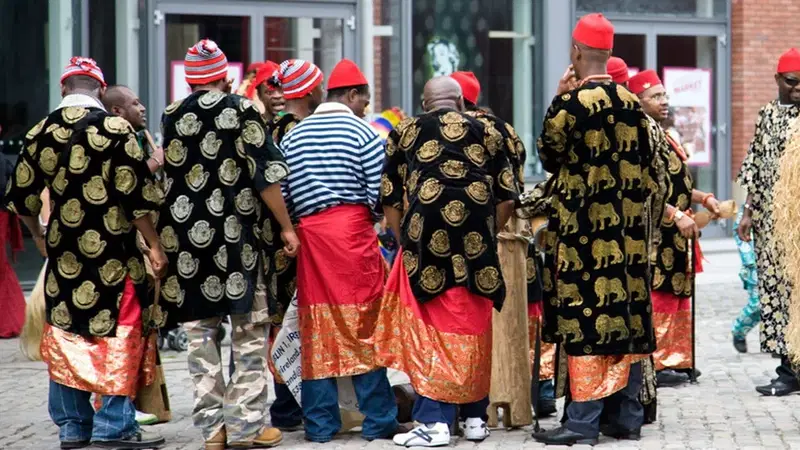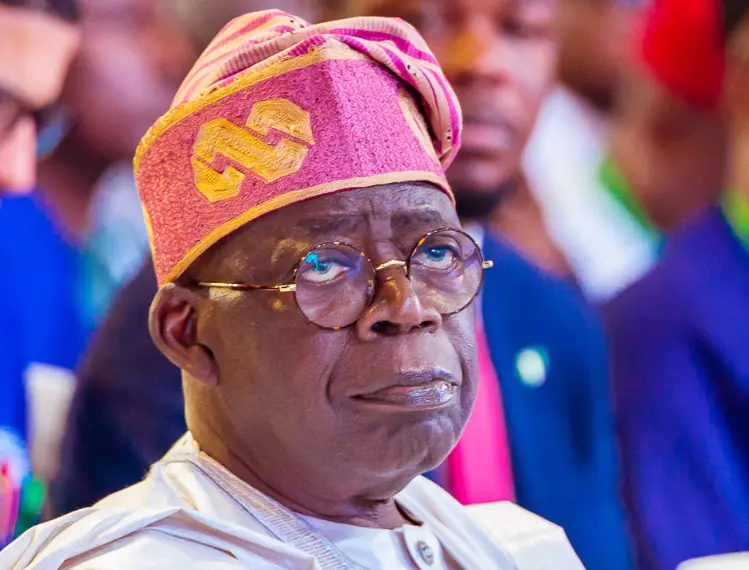
ENUGU — NOTABLE Igbo clergies and other leaders have frowned at the trend of extravagant and wasteful manner Ndígbo conduct burial ceremonies these days, while the living are hungry, dying in penury. They called for a change in the trend and pay more attention to the living, care for and celebrate them while they are alive. They argued that the wasteful display of wealth at burial ceremonies is un-Igbo and unacceptable and should not be encouraged.
Bishop Onuoha narrates pathetic story
Frowning at the trend, the Bishop of Okigwe South, Anglican Communion, Most Rev. Dr. David O. C. Onuoha, laments the neglect of parents and relations while alive, only to organise lavish burial for them at death.
“There was a very sad case I have refused to forget. A wretched security man was laid off for pilfering. Nobody in his community knew that he had a wealthy son somewhere, in a distant land. When this man died, his son mobilised and built a massive structure in their compound, hired dispatch riders, a horse-drawn hearse, and the type of gunshots heard was unprecedented.
“That was how a man, who literally died of hunger, was given a befitting burial. The practice should not be encouraged at all.
“What we are seeing today is an imposition of a foreign culture in Igboland, and people are following sheepishly, without considering who we are and where we are coming from. “The pertinent question we need to ask ourselves today is: Do we mourn the dead or do we celebrate death in Igboland? In the past, we mourn the dead and celebrate the living, but today, the reverse is the case.
“We have seen cases of people abandoning their parents for years, but when they die, possibly out of hunger, neglect, abandonment, or frustration, these prodigal children return to spend stupendous sums, all in the guise of giving the deceased a befitting burial, for someone who never lived a befitting life.
“These days, there is no difference in the attire of those who go to weddings and burials. There is nothing like mourning anymore in Igboland. What we are doing now cannot be defended traditionally, customarily, or religiously, and common sense cannot support it.
“In the traditional Igbo community, like we saw it while growing up, burial cost was largely borne by the society, rather than the family. In those days, when somebody died, the men collectively provided all the drinks, while the women took care of the food. Today, the burial is completely left to the bereaved family.
“That is why the Church in this Diocese (Okigwe South) directed that no corpse should remain in the morgue beyond 30 days. That was our way of cutting costs and flamboyant exhibitions. We have been preaching and encouraging people not to borrow, but to bury their loved ones. There is no cogent reason why any family should sell their property or become indebted to anybody after burial.
“If our member dies abroad, the 30 days will start counting from the day the corpse lands in Nigeria. We cannot pander to their whims and caprices. As a Bishop, I do not accept gifts or sit to eat anything whenever I go for burials.”
It is very sad that Igbo now respect and honour the dead more than the living — Ebonyi monarch laments
The traditional ruler of Nkaliki Unuhu Achara, Ezeogo Sunday Oketa, strongly criticized the trend of prioritizing the dead over the living.
He called for regulations to limit burial costs, emphasizing that valuing the dead more than the living sends the wrong message. He stressed the need to uphold customs that prioritize the well-being of the living. Ezeogo Oketa wondered about the interest in importing aliens and the negative to Igbo land.
He encouraged rich Igbo men and women to build industries and factories that would provide jobs for the teeming youths rather than to waste money on honouring the dead in the name of befitting burials.
The traditional ruler strongly condemned the wasteful practice and wondered why a bereaved person should build a new house, buy a casket worth millions of Naira for the dead, when those living are dying of hunger and starvation.
“The extravagant cost of burial is getting out of hand in Igboland. How can we keep a corpse in the morgue for months or years in preparation for the burial? Why is it that when somebody who doesn’t have a house while alive dies, his son will start building a house for him or start renovating the old building, buy a costly casket to bury him, while the living are hungry?
He called on the Igbo to reconsider wasteful burial ceremonies and invest in supporting the living. The monarch urged serious penalties for those who violate rules against extravagant burials, arguing that these practices force many families into debt and hardship just for appearances. He maintained that the wise choice is to prioritize the living and embrace the traditional, modest burial customs that once defined the Igbo.
Speaking to the matter, the Archbishop of Umuahia Methodist Diocese, Abia State, Chibuzor Opoko, also frowned at the practice of flamboyant and ostentatious burial ceremonies in Igboland. He said that it makes no sense to waste resources on the burial of persons, some of whom were never shown such care while living.
“The church has spoken, decreed about these ostentatious and dangerous practices. For people to even go into indebtedness just to bury the dead is crazy.
People should begin to reflect about life and avoid all this wasteful flamboyancy and showoffs. Why should we show off when our people die? A man who never entered a jeep when he was alive, when he dies, you want to buy a casket that is even costlier than the house where he lived. A man whose house was never painted, no good seats, when he is alive, at death, you call a funeral home, buy expensive caskets, and bring automobiles. This is crazy!”
Archbishop Opoko urged governments and community leaders to come up with legislation and ensure strict compliance. He advised that those involved in ostentatious burials be scrutinized to ascertain their sources of wealth.
“How did these guys make this money they are wasting in this way? If you want to show off, go and show care to the disabled. Go and show care to those who are in need.
“The church and government, and the traditional rulers, should tighten up. We have discouraged people from this. We should support the living, not wasting resources on the dead”, the clergy said.
A community leader in Abia State, Chief Victor Azumara, suggested that communities can use the Umunna, youths, and the Umuada to enforce the ban on extravagant burial ceremonies. “Igbo people should realize that it is a waste to spend outrageous amounts on burials. Burials have become competitive as families and individuals struggle to outdo each other to the extent that people sell their lands and other choice properties to organize such lavish burials”, Azumara noted.
Chief Gilbert Bravo Obi, Chairman, Board of Trustees, Nigerian Importers Association, dismissed as senseless, saying “ a situation where someone will sell land or borrow money to execute a befitting burial does not augur well for the progress of the living.”
VANGUARD.




